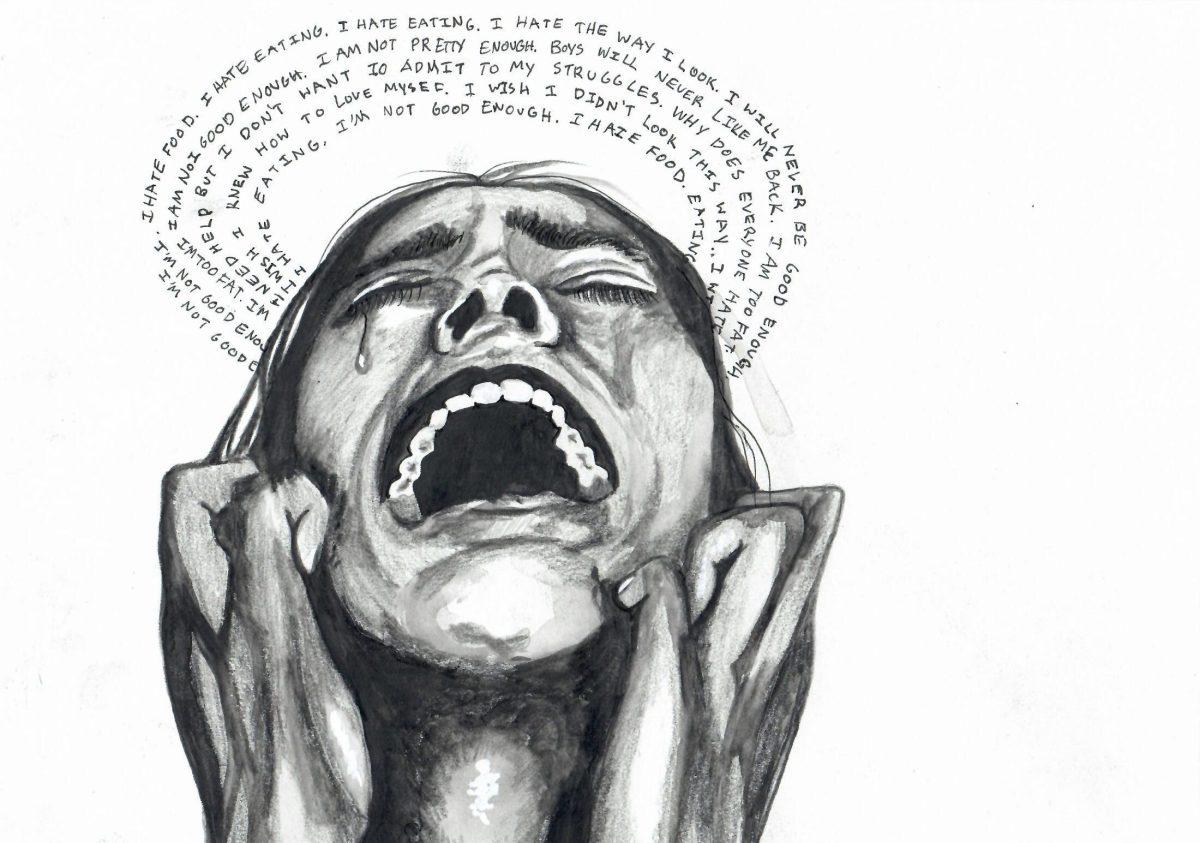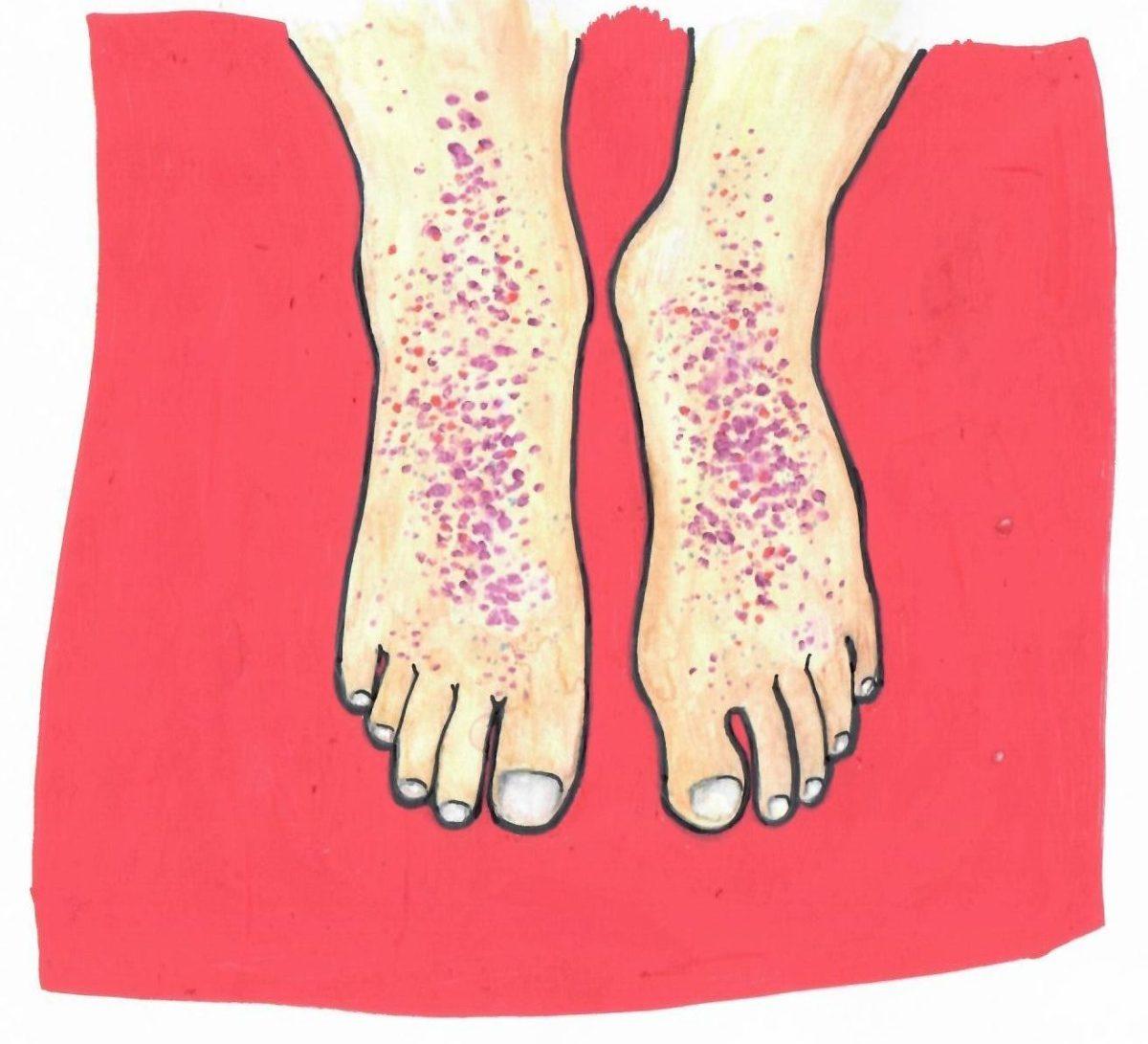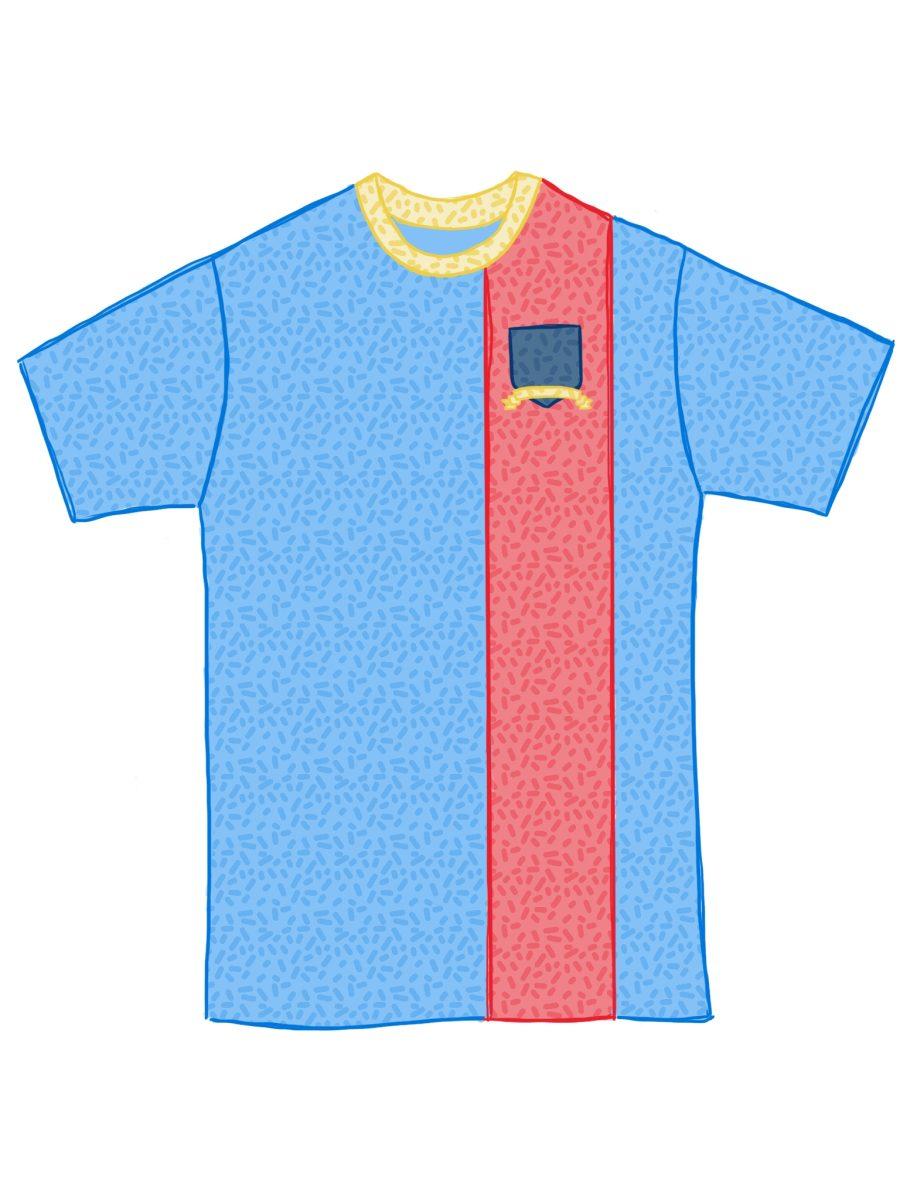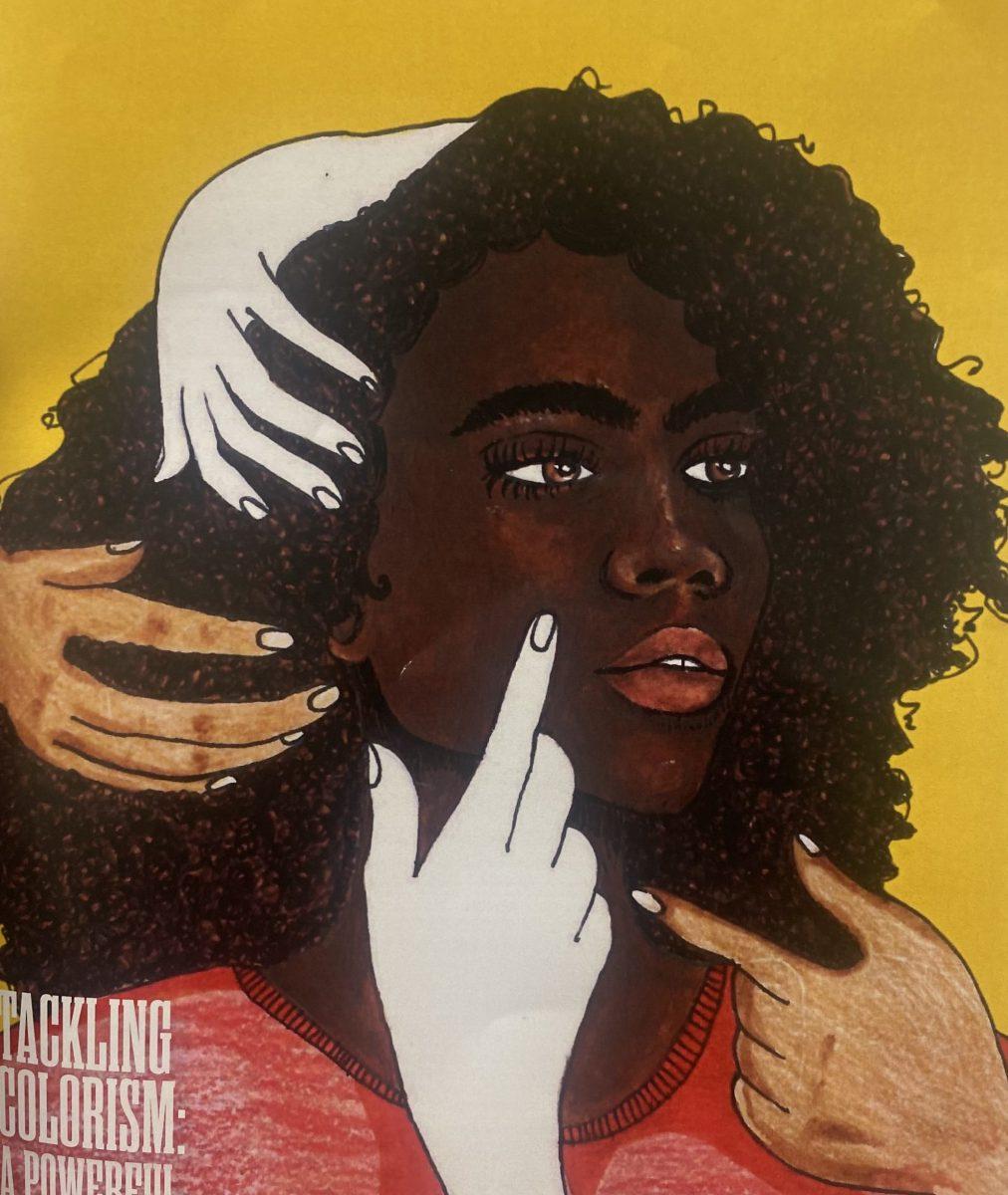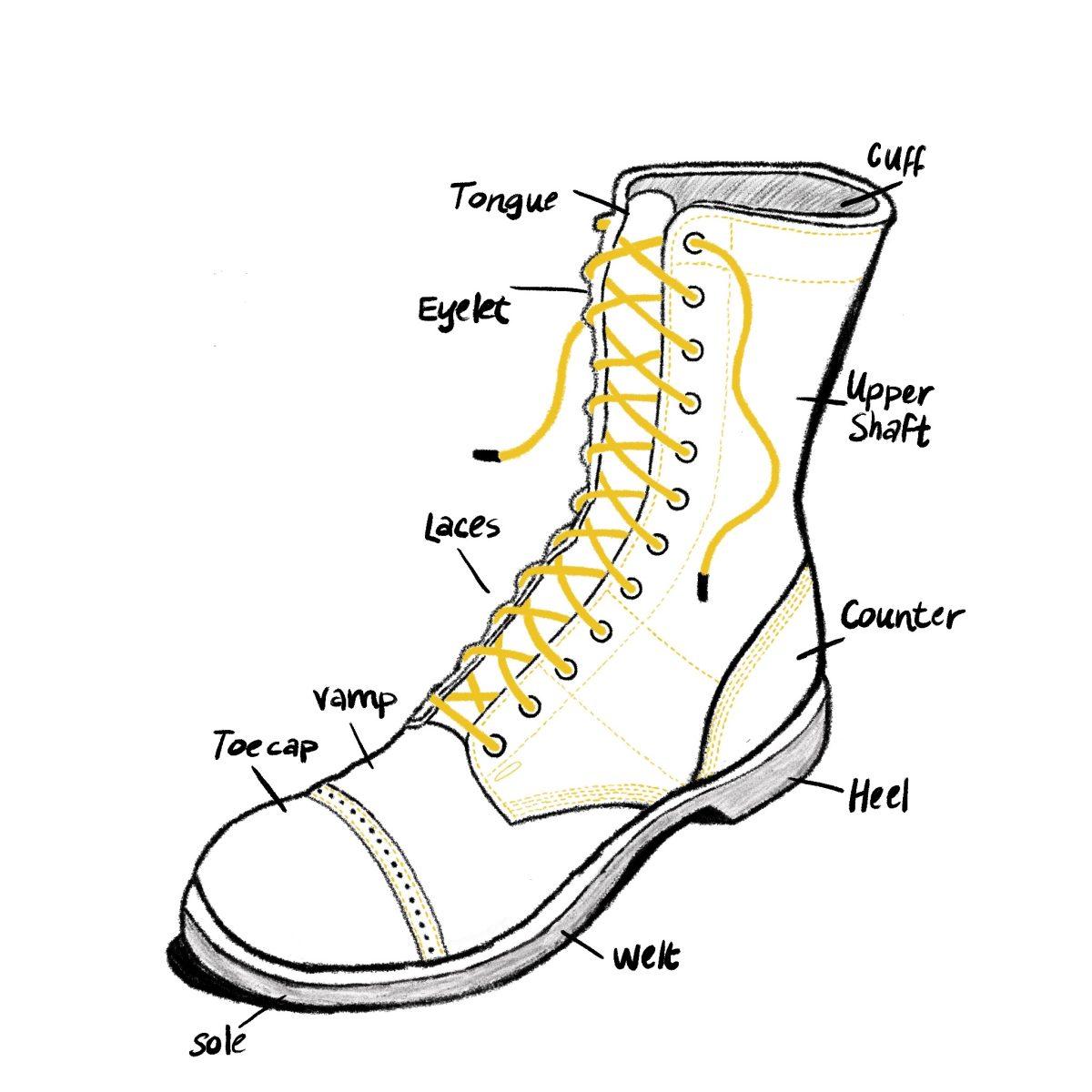Trigger Warning: This story contains mentions of bullying, weight loss, eating disorders, and other mental health issues.
Middle School
Obesity runs in my family, and diet culture has always played a significant role in my life: from Weight Watchers to keto, I was surrounded by it all growing up. Despite this, entering middle school, I was flaunting all the baby fat my classmates had succeeded at shedding.
I have found that the majority of middle schoolers, most noticeably middle school boys, are mean. They tend to be outspoken, rude and hyper. They do not like what does not fit into their binary. In sixth grade, I was an overweight girl with short red hair. I did not fit their binary.
This binary, the merit of how the female body should look and act, did not originate from middle school boys. It was nurtured from years of systemic fatphobia. That fatphobia did not start with the red-haired, overweight, white girl. Fatphobia stemmed from racism, a way to rationalize the dehumanization and brutalization of Black and Brown bodies.
The systems of beauty present in our culture come from the white man’s view of the world. His view villainizes the overweight body and makes it so middle school boys bully an overweight girl. Because of his view, my sheer existence offended people.
In middle school, I was turned into a running joke. I had nicknames, and it made me angry. Angry at myself for looking the way I did and angry at my peers for hurting me. Anger made me mean, which made people meaner, which made me meaner, which made people meaner, a cycle that seemed neverending.
The bullying and fatphobia was so unconsciously ingrained within my middle school that at one point, my closest friends were calling me the nicknames that the boys had created. I am unaware of whether or not they knew what the nicknames meant or their origins. Nevertheless, by the end of my seventh-grade year, half of my classmates, even my teacher, had called me a name that compared me to a pig.
These nicknames hurt, but I learned to put up walls. It was as if I had created a castle around my mind and my body. The castle was a coping mechanism, a way to emotionally and physically block out the pain. It was so built up that I hadn’t truly come to terms with what happened until the end of my sophomore year. The castle was my protection, and I needed it. It was my way to shut away everything.
But the walls of the castle couldn’t keep out the fact that no one stood up for me. My friends, my best friends, laughed along, and that broke me. It broke my barrier, marching straight past my defenses, tearing me apart, time and time again. I watched as those around me stood by and did nothing: those I trusted, those I loved and those who defended me in private.
The thing is, I can’t blame them. We were all trying to fit in. I laughed along too. I accepted pain so that those who inflicted it would accept me.
I was so hurt, and so I did what I knew best: I built up a defense for that castle, strengthening my walls, and I fought back. I was not, and I am not, a perfect victim. All I can do to make up for that is say I am sorry to those I harmed out of anger with my words and my actions.
Freshman Year
During freshman year, the majority of the blatant bullying stopped. That wasn’t to say my weight was not discussed. My peers, even some of my close friends, continued to discuss my weight behind my back. There were also a few instances of people taunting me to my face. Despite this, the majority of the hurt I endured in my freshman year was due to my relationship with myself and the societal standards of beauty enforced everywhere around me.
At that time, the one thing I wanted most was a relationship. I was constantly worried about how the boys around me perceived me. Being overweight in a school of mostly skinny girls is hard. I let myself get trapped in the societal standard of beauty to please the male gaze.
This gaze became everything I cared about. I constantly searched for ways to fit its constricting persona. But I was not that girl. I was not quiet, approachable, skinny or anything that seemed to be what men wanted.
The beauty standard, these “rules,” reinforced within the media for how a girl’s body should look, is crushing. Being constantly reminded that we are far from good enough causes detrimental repercussions to women everywhere. It was because of this standard, that I let myself become a sculpture to be molded and mended, returned when it didn’t work right and sold at a discounted price.
In freshman year, I didn’t fit in, I felt overlooked, unloved and disrespected. I made myself as loud as humanly possible, but still, those feelings persisted.
Regrettably, I took the hate that these feelings created and I pushed it back out. I talked back to my teachers. I yelled at my peers. I was snarky and mean, all of which I wish I could take back. The outright hurt from others died down, yet I was still taken over by an unstoppable feeling of worthlessness.
I felt no love freshman year. But, to be fair, it is hard to love someone who doesn’t love themself.
Sophomore Year
Everyone dedicated themselves to something over quarantine. For some, it was knitting. For others, it was a sport. For me, it was my weight.
*This next section discusses harmful eating disorder habits. My intention with this story is to inform and not to harm. This section may be triggering to some, if that is the case for you, please do not continue.
Junior Year
I have always been obsessed with my future, envisioning my perfect life. I spent countless hours scrolling through social media, watching television and looking through magazines crafting this dream. I was subconsciously given a checklist by the media: everything I needed to be in order to achieve my picture-perfect future.
Item Number 1: You need to be skinny.
Anorexia is a killer. It’s all-consuming. It’s like a hornet that won’t go away. Pair that with a binge eating disorder, and it’s like being chased by a whole swarm, suddenly I am stung all over and I can’t breathe.
Until recently, most of the people in my life, besides my closest friends, had no idea that I suffered from, as severe of, an eating disorder as I did, not even my parents. I don’t like feeling pitiful, anorexia makes me feel so alone, and so weak.
It’s like I failed. I couldn’t defend myself without becoming the person I didn’t want to be. I couldn’t love myself when I needed to the most. I couldn’t even lose weight the healthy way, the way that has seemed to work for so many others. I hate being a failure, and yet that is what I have become.
Now that I have lost weight, people tend to make comments about my new body. Only this time, it’s not the taunts from years before.
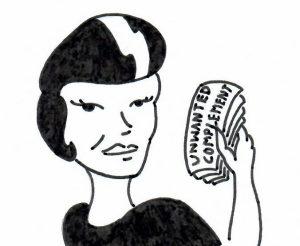
If only I had a dollar for every “compliment” I have received.
“Oh honey, you just look so good now.” Cha-ching.
“You’re so beautiful, you really grew into your body.” Cha-ching.
“Oh, I didn’t even recognize you, you’re just so pretty now.” Cha-ching.
Yeah. I would be a millionaire.
I learned to get used to these comments, but for a while, they were harmful. They reinforce the idea that my body is only deserving of praise when it is smaller. It is also bothersome that part of me likes these comments. I finally feel accepted. It is an odd sort of acceptance, knowing they might not have felt this way two years ago, but acceptance nonetheless. I feel all of this love now, but my anxiety, and my anorexia, have convinced me that if I do not maintain the weight loss, I will simply not be loved.
I still suck in my stomach when I walk in the halls because it feels safer. I don’t wear clothes that reveal my stomach too much, and I feel ten times better when my morning skinny stays until lunch.
My life revolves around my body, and as hard as I try to detach myself from that, I can’t. I still long for the approval of those boys who hurt me. Every time I post on social media, every time I put on an outfit for school, they are in the back of my mind.
I hate knowing that they might be reading my story. But I’m trying to be honest, and that is the most honest thing I can say.
Right now, I am satisfied with who I have become.
Right now, I feel the most seen and the most wanted, both by others and by myself. I want to be content with this happiness. But, I find it hard to be content with something that feels so conditional.
I am learning to let myself feel love, that unconditional feeling,
every day it is a struggle, and that is something I’ll have to live
with.
Right now, I am happy.
Why couldn’t I feel that way 70 pounds ago? ♦





























